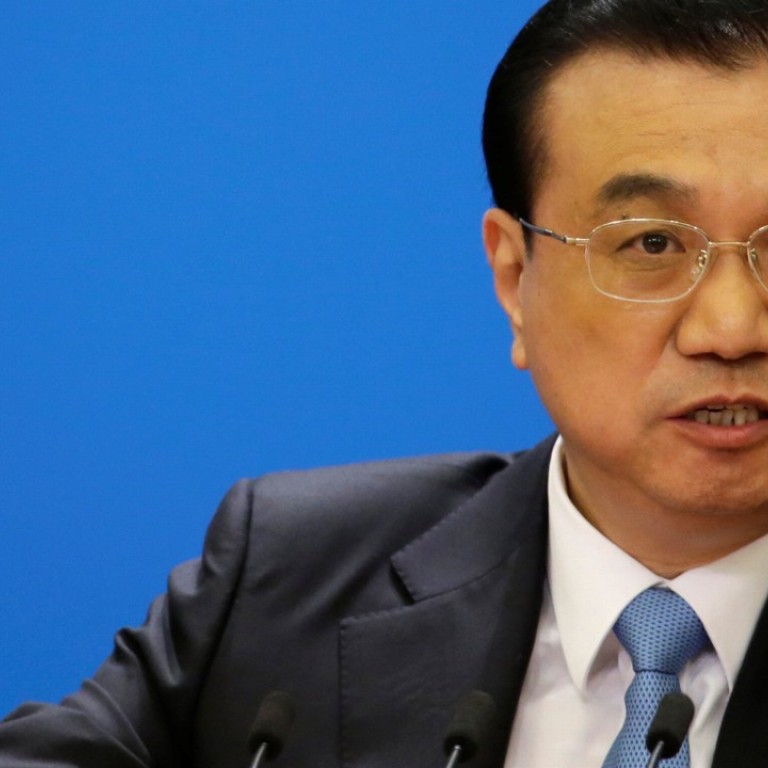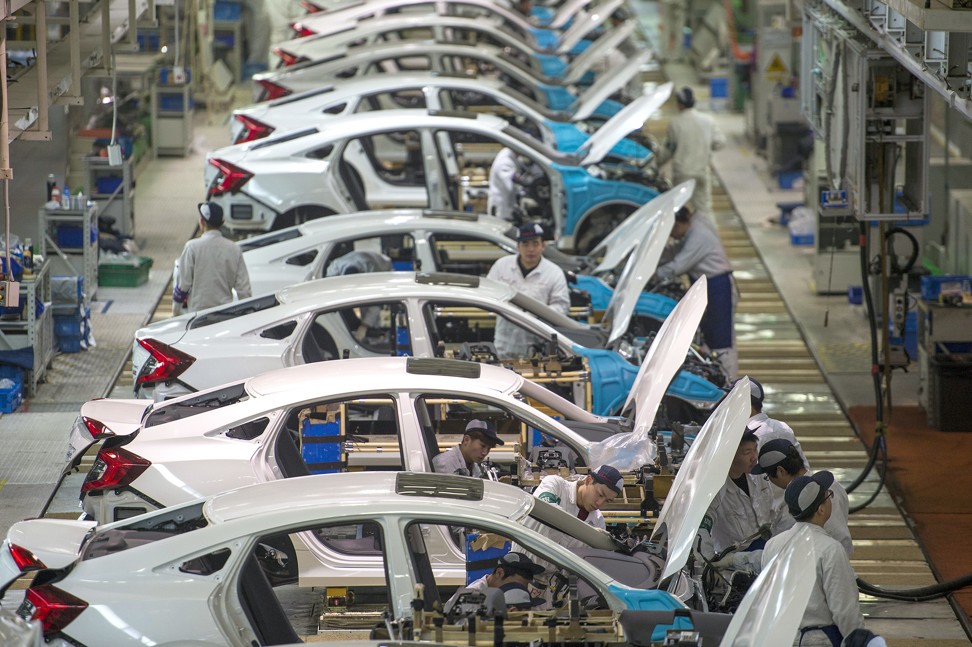
China vows to end forced tech transfers in manufacturing sector
Li Keqiang also pledges to open up some service sectors, remove equity caps on foreign firms in some areas and ease restrictions on foreign investment
Premier Li Keqiang on Tuesday vowed there would be no mandatory technology transfers in China’s manufacturing sector, in the latest bid to reassure the country’s frustrated trading partners.
Foreign companies have complained for years about forced technology transfers in exchange for market access in China, including having to reveal their most sophisticated or key technology to Chinese partners in joint ventures.
They say forced technology transfers are rife in the car, semiconductor and new energy battery industries, but Beijing has not officially acknowledged that such practices exist.
“We will fully open up the manufacturing sector, with no mandatory technology transfers allowed, and we will protect intellectual property,” Li told a press conference wrapping up the National People’s Congress in Beijing.
Li also said the government would open up sectors such as aged care, education and financial services, remove equity caps on foreign firms in some areas, and gradually cut market access restrictions on foreign investment. But he did not give any further details or say when these changes would happen.
“Fulfilment of this [no forced technology transfers] and other pledges made by the Chinese leadership over the past year could help to defuse the growing risk of trade wars,” said Mats Harborn, president of the European Union Chamber of Commerce in China.
“It is now crucial that we see a concrete timeline for this opening to take place.”

In a business confidence survey conducted by the chamber of commerce last year, at least one-fifth of the European firms reported having to transfer their technology to obtain market access.
“This has historically resulted in many foreign enterprises refusing to bring their best technology and products to the market, which ultimately has a negative impact on China,” Harborn said.
Compulsory technology transfers have also been a factor in the escalating trade tensions between Beijing and Washington. They are one of the reasons the US launched an investigation in August into China’s trade practices and its alleged theft of intellectual property under Section 301 of the Trade Act of 1974.
Washington also said Beijing has backed the systematic acquisitions of US companies by Chinese firms to obtain advanced technologies, especially those that are key to government innovation plans such as Made in China 2025.
US companies have also complained about the selective and non-transparent ways they have been pressured into transferring technologies.

The administration of Donald Trump is preparing to impose annual penalties of US$60 billion against more than 100 Chinese products as a result of the findings of its investigation.
Observers have warned that the economic sanctions would be a heavy blow to Chinese industry and may worsen trade confrontations between the world’s two largest economies.
The American Chamber of Commerce in China welcomed Li’s pledge to provide more market access and improve intellectual property protection, but it also called on the government to move quickly on reforms.
“Trade wars have a history of not ending well. After years of bilateral negotiations with only incremental progress, the US seems to feel it is left with few options,” said the chamber’s chairman, William Zarit.
“The proposed trade remedies may not be perfect, but based on past talks, the US probably feels that without pressure, little progress will be made. So we will have to wait and see how quickly real reforms can be put in place, and how effective they will be,” he said, also calling for fairness and reciprocal treatment.

